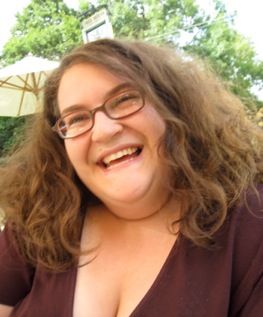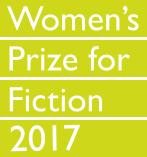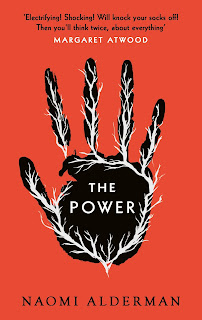20518
Followers
29
Following
Sabbie Dare and Friends
I have been writing fiction since my reception teacher, Mrs Marsden, put a paper and pencil in front of me. I can remember thinking; What? Do real people write these lovely books? I want to do that! I gained an MA in creating writing and sold my first books for children; Sweet’n’Sour, (HarperCollins) and Tough Luck, (Thornberry Publishing), both from Amazon. I also love writing short stories and they regularly appear in British anthologies.
I now write crime fiction, published by Midnight Ink. The idea for In the Moors , my first Shaman Mystery came to me one day, in the guise of Sabbbie Dare. She came to me fully formed and said; “I'm a young therapist, a shaman, and sometimes I do get very strange people walking into my therapy room. Honestly, I could write a book about some of them...”
I am a druid; a pagan path which takes me close to the earth and into the deep recesses of my mind. Shamanic techniques help me in my life - in fact they changed my life - although, unlike Sabbie, I’ve never set up a therapeutic practice...I’m too busy writing and teaching creative writing with the Open College of the Arts. I’m a fellow of the Higher Education Academy.
Although I was born, educated and raised my two children in the West Country, I now live in west Wales with my husband James.
IN THE MOORS, the first Shaman Mystery starring SABBIE DARE was released in the US in 2013 and UNRAVELLING VISIONS will be out this autumn, but you can already reserve your copy on Amazon.
Join me on my vibrant blogsite, http://www.kitchentablewriters.blogspot.com where I offer students and other writers some hard-gained advice on how to write fiction.
THE POWER
Is the reader as important as the writer? Does their opinion of what they read count as much as what the writer believes about what they are writing? I think most people do believe the reader can and should interpret what they read and make this public.
 In Death of an Author, Roland Barthes argued that readers should ‘liberate’ their reading, from the ‘interpretive tyranny’ of the critic who first looks at the writer, their ethnicity, politics, religion, even personal attributes and relates these to the reading. For instance, if the writer was a known 30’s fascist, then that would be immediately taken into consideration to be part of gaining the meaning. The essential meaning of a work depends on the impressions of the reader, rather than the passions of the writer; a text's unity lies not in its origins, or its creator, but in its destination, or its audience.
In Death of an Author, Roland Barthes argued that readers should ‘liberate’ their reading, from the ‘interpretive tyranny’ of the critic who first looks at the writer, their ethnicity, politics, religion, even personal attributes and relates these to the reading. For instance, if the writer was a known 30’s fascist, then that would be immediately taken into consideration to be part of gaining the meaning. The essential meaning of a work depends on the impressions of the reader, rather than the passions of the writer; a text's unity lies not in its origins, or its creator, but in its destination, or its audience.
 In Death of an Author, Roland Barthes argued that readers should ‘liberate’ their reading, from the ‘interpretive tyranny’ of the critic who first looks at the writer, their ethnicity, politics, religion, even personal attributes and relates these to the reading. For instance, if the writer was a known 30’s fascist, then that would be immediately taken into consideration to be part of gaining the meaning. The essential meaning of a work depends on the impressions of the reader, rather than the passions of the writer; a text's unity lies not in its origins, or its creator, but in its destination, or its audience.
In Death of an Author, Roland Barthes argued that readers should ‘liberate’ their reading, from the ‘interpretive tyranny’ of the critic who first looks at the writer, their ethnicity, politics, religion, even personal attributes and relates these to the reading. For instance, if the writer was a known 30’s fascist, then that would be immediately taken into consideration to be part of gaining the meaning. The essential meaning of a work depends on the impressions of the reader, rather than the passions of the writer; a text's unity lies not in its origins, or its creator, but in its destination, or its audience.I like the idea that the reader has opinions that count, but how can we make our opinions felt? Apart from sites like Goodreads.com and Booklikes.com, there are the glittering book prizes, where readers decide who will win. But most of those readers are writers or editors, or in some other way associated with the book trade.
Recently I finished ‘The Power’ by Naomi Alderman. The story begins when teenage girls worldwide simultaneously develop a 'skein' – a strip of muscle in their collarbone which conducts electricity, allowing them to instantly inflict pain and even death. Some girls have more power than others and they are able to wake up the force in older women too. Virtually overnight, the world changes beyond recognition. Women are elected as political leaders virtually everywhere, the army is almost completely composed of women, while sex-trafficked women break free from their bonds.
If the book had been written the other way around, with men being all-powerful, we would more or lesws be reading about the real world, the one we live in. So how does Alderman visualise such a dramatic change as this? You’d think the prediction for a sudden matriarchal society would be that it’s more caring and nurturing than this one, where men are generally in charge. But the story is dystopian, suggesting that absolute power really does corrupt absolutely. Men become second-class citizens and this world unfurls into a mirror image of the one it left behind.
 |
| http://www.naomialderman.com/about/ |
If the book had been written the other way around, with men being all-powerful, we would more or lesws be reading about the real world, the one we live in. So how does Alderman visualise such a dramatic change as this? You’d think the prediction for a sudden matriarchal society would be that it’s more caring and nurturing than this one, where men are generally in charge. But the story is dystopian, suggesting that absolute power really does corrupt absolutely. Men become second-class citizens and this world unfurls into a mirror image of the one it left behind.
 Readers had mixed opinions. It won the Sunday Times Young Writer of the Year and Granta Best of British writer. It’s getting five stars on all the review sites (mostly from women, which made me wonder if men are reading it). But when I went to my book club, all women, I was surprised to find that they all agreed with me, that this book, although a thought-provoking read, should not have won a major prize like the Bailey’s Women’s Prize. My reading friends agreed that the writing in The Power is not elevated or illuminating, that it read at the same level as something like The Hunger Games; fast-paced and easy to race through – a thriller, yes, but the language is basic and at times clumsy, and the characters are thinly revealed or developed. We didn't rate it as a work of literature. Perhaps that was mean of us. We already knew that Atwood had loved the book; did that influence us adversly? And in any case, does our opinion change what the book originally meant?
Readers had mixed opinions. It won the Sunday Times Young Writer of the Year and Granta Best of British writer. It’s getting five stars on all the review sites (mostly from women, which made me wonder if men are reading it). But when I went to my book club, all women, I was surprised to find that they all agreed with me, that this book, although a thought-provoking read, should not have won a major prize like the Bailey’s Women’s Prize. My reading friends agreed that the writing in The Power is not elevated or illuminating, that it read at the same level as something like The Hunger Games; fast-paced and easy to race through – a thriller, yes, but the language is basic and at times clumsy, and the characters are thinly revealed or developed. We didn't rate it as a work of literature. Perhaps that was mean of us. We already knew that Atwood had loved the book; did that influence us adversly? And in any case, does our opinion change what the book originally meant? Finally, we asked this…was there a more worthy winner on the short list?
The approach in Death of an Author works well for literature written by peoples we’ll never known or have chance to understand, possibly because they are long dead, or a recluse like DJ Salinger. Are the author's intentions and views about their own work, more or less valid than a reader’s interpretation? In the past women often had to publish under a male name, like the Bronte sisters, or anonymously for other reasons, as JK Rowling did, when she wanted to see how her crime novel would be accepted.
On the other hand, readers don’t seem to be interested in the idea that we should make up our mind only through our reading, and not from any outside inflences. The Radio 4 favourite, Book Club, wouldn’t be so loved if that were true. In this programme, you are told in advance which author will be attending with a studio audience, who will ask questions about the author’s recent work. For the same reason, Book Festivals, are massively attended. We all want to hear what the author says about their own work.
On the other hand, readers don’t seem to be interested in the idea that we should make up our mind only through our reading, and not from any outside inflences. The Radio 4 favourite, Book Club, wouldn’t be so loved if that were true. In this programme, you are told in advance which author will be attending with a studio audience, who will ask questions about the author’s recent work. For the same reason, Book Festivals, are massively attended. We all want to hear what the author says about their own work.
 Would The Power have won the Bailey’s if the judges hadn’t known that Margaret Atwood ‘mentored’ the book and gave it her wholehearted support? Atwood is justly renown for both her early works, which gave her a ‘name’ and for her later science fiction, but mostly, she’s in the news at the moment for the brilliant TV adaptation of Handmaid’s Tale. At our book club we couldn’t understand what she saw in this book, which we agreed was original and inventive, but concentrated on pursuing the idea that girls could now inflict pain, and describing gratuitous acts of violence, death and rape. What if a man had written this self-same book? Would it have been lauded, especially by feminists? Or would they have suggested that the dystopian nature of the outcome was due to a ‘male view’? What if the athour had reversed the theme, so that it was men who were born with electrocuting ‘skeins’? Would this book, as it stands, but gender reversed, have been read as literature? Or marketed under a lurid cover?
Would The Power have won the Bailey’s if the judges hadn’t known that Margaret Atwood ‘mentored’ the book and gave it her wholehearted support? Atwood is justly renown for both her early works, which gave her a ‘name’ and for her later science fiction, but mostly, she’s in the news at the moment for the brilliant TV adaptation of Handmaid’s Tale. At our book club we couldn’t understand what she saw in this book, which we agreed was original and inventive, but concentrated on pursuing the idea that girls could now inflict pain, and describing gratuitous acts of violence, death and rape. What if a man had written this self-same book? Would it have been lauded, especially by feminists? Or would they have suggested that the dystopian nature of the outcome was due to a ‘male view’? What if the athour had reversed the theme, so that it was men who were born with electrocuting ‘skeins’? Would this book, as it stands, but gender reversed, have been read as literature? Or marketed under a lurid cover?Meanwhile, my book club had all read the rest of the shortlist, and we all preferred one particular book. It didn't win, but nevertheless it's a total winner in our opinion.
Which was was it? Well, that's what suspension is all about folks. I'll review it, as my favourite book of 2017, in my next blogpost.



